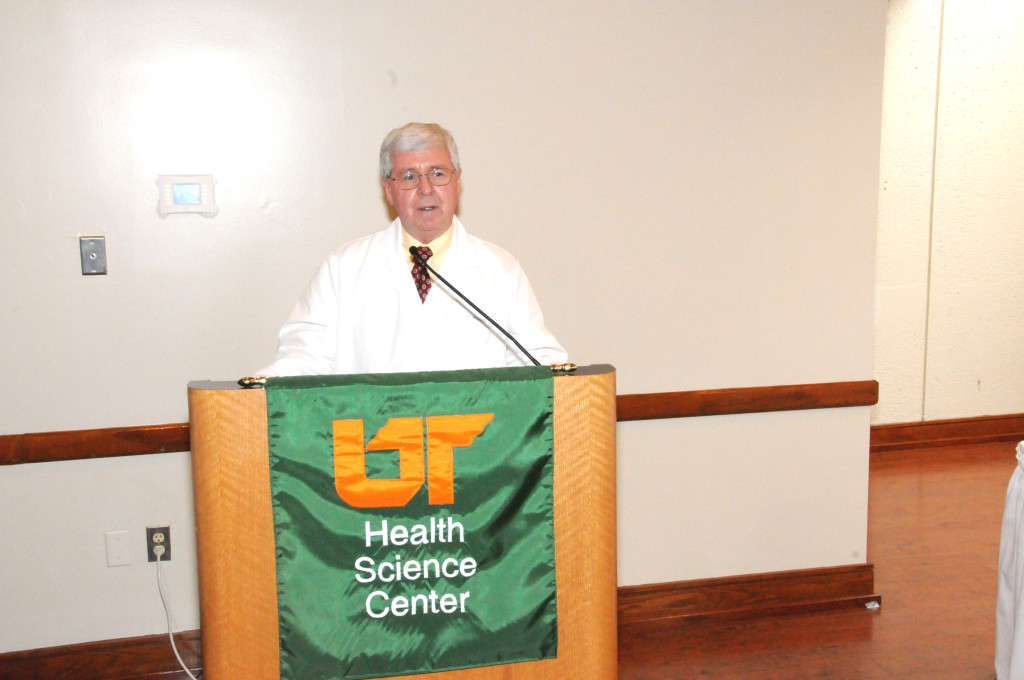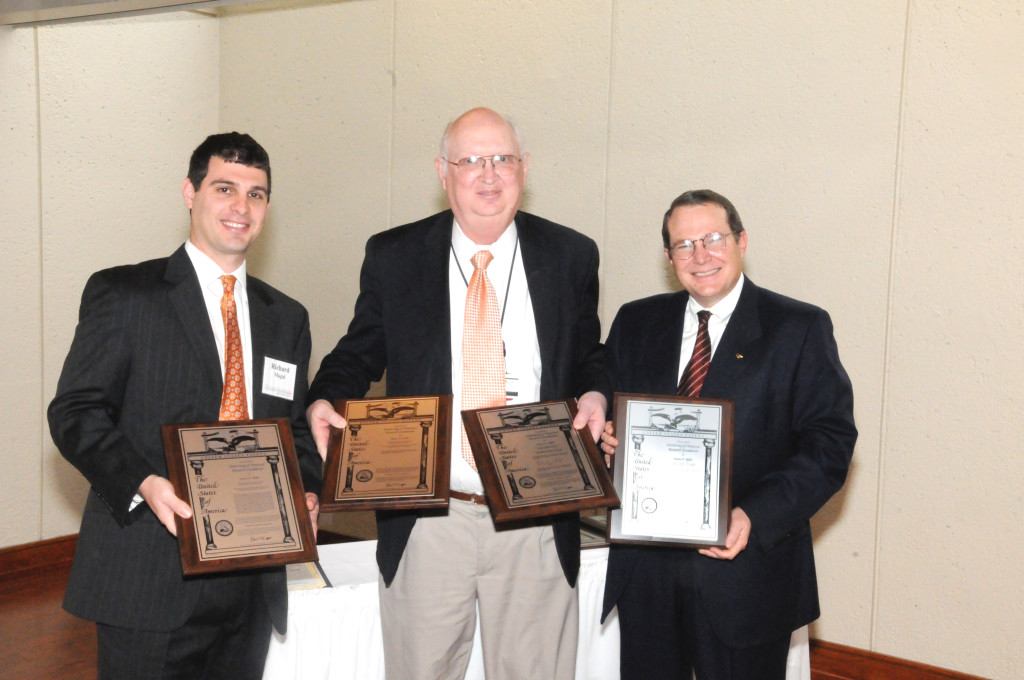University of Tennessee Health Science Center- Innovation Awards Spotlight Discoveries with Potential to Transform Lives
On January 20, 2012, more than 20 researchers at the University of Tennessee Health Science Center (UTHSC) were recognized for their work in both developing and commercializing discoveries that have the potential to transform the lives of people in Tennessee and throughout the world.
At the annual Innovation Awards ceremony, hosted by the University of Tennessee Research Foundation (UTRF) and held at the UTHSC Student-Alumni Center, plaques and certificates were awarded to individuals earning patents and licenses. Also recognized were those researchers who started new businesses based on their inventions. About 50 UTHSC team members and guests attended the luncheon ceremony on the university’s campus in the heart of the Memphis Medical Center.
“This ceremony recognizes deserving inventors and the innovations they have made at the UT Health Science Center,” Richard Magid, UTRF vice president, said. “UTRF is honored to be able to assist these inventors in moving their discoveries from the laboratory to the marketplace.”
“UT Health Science Center is committed to all aspects of our research mission,” said Chancellor Steve J. Schwab, MD, UTHSC’s top administrative officer. “We are delighted to be here today to congratulate and celebrate the UTHSC innovators who are a critical element in continuing to drive our research mission forward.”
“In order to have a successful commercialization, you first need to have a product that works, that is suitable for scale, and that is approved by the FDA,” stated guest speaker Shannon McCool, DPh, chairman and chief executive of RxBio, Inc., an early stage biopharmaceutical company that has spun out of UTHSC, and which was recently awarded a $15 million federal contract. “Then, you need two types of resources; people power and financial resources.”
Patents are awarded for unique technologies, and to protect inventions that may benefit society. Fewer than 10 percent of the discoveries at UT are eventually granted patents from the U.S. Patent and Trademark Office, illustrating the level of innovation and dedication of the researchers.
Inventors awarded patents include:
- Duane Miller, PhD, and Mitchell Steiner, MD: Methods of treating or preventing muscle loss in wasting disorders such as cachexia, malnutrition, tuberculosis and kidney failure;
- Duane Miller, PhD: Methods of manufacturing SARMS, an important class of experimental pharmaceutical compounds;
- Duane Miller, PhD: Methods of treating or preventing muscle loss;
- Michael Whitt, PhD: Recombinant viruses useful for gene therapy or other biotechnology applications;
- Brian Kelly, PhD, and Denis DiAngelo, PhD: A machine for realistic biomechanical testing of the performance of spinal implant devices;
- Bob Moore, PhD, Himanshu Bhattacharjee, PhD, Ryan Yates, PhD, PharmD: New experimental pharmaceutical compounds for treating cancer or inflammatory diseases;
- Duane Miller, PhD: Experimental pharmaceutical compounds that can be used to treat a variety of hormone-related conditions.
Once a technology or idea has been patented, it may be licensed to outside companies for further development and commercialization. Licenses stemming from patented technologies generate revenue for the university and may be the basis for starting new companies, which contributes to local and regional economic development.
Inventors recognized for a technology licensed in the past year include:
- Lawrence Pfeffer, PhD, and Ziyun Du, PhD, for a cell line on sale as a research tool;
- Marko Radic, PhD, for a monoclonal antibody on sale as a research tool;
- Bob Moore, PhD, Charles Yates, PhD, PharmD, Duane Miller, PhD, Himanshu Bhattacharjee, PhD, John Buolamwini, PhD, and Mathangi Krishnamurthy, PhD (no longer employed by UTHSC), for experimental cancer drugs;
- Leonard Lothstein, PhD, Polly Hoffmann, PhD, Trevor Sweatman, PhD, Mervyn Israel, PhD (no longer employed by UTHSC), for experimental cancer and cardiology drugs;
- Duane Miller, PhD, Jayapraka Pagadala, PhD, Jena Steinle, PhD, and Kimberly Williams, PhD (no longer employed by UTHSC), for experimental ophthalmology drugs;
- Emma Tillman, PharmD, Michael Storm, PhD, and Richard Helms, PharmD, for an infant and pediatric nutrition supplement;
- John Cromwell, MD (no longer employed by UTHSC), for a device to aid surgical recovery.
Researchers recognized for starting a new business include:
- Himanshu Bhattacharjee, PhD, John Buolamwini, PhD, Duane Miller, PhD, Bob Moore, PhD, and Ryan Yates, PhD, PharmD: Cancer-drug development;
- John Cromwell, MD (no longer employed by UTHSC): Post-operative recovery device;
- Richard Helms, PharmD, Michael Storm, PhD, and Emma Tillman, PharmD: Pediatric and infant nutrition supplement.
~Dee Helton, Student Ambassador at UT Health Science Center



